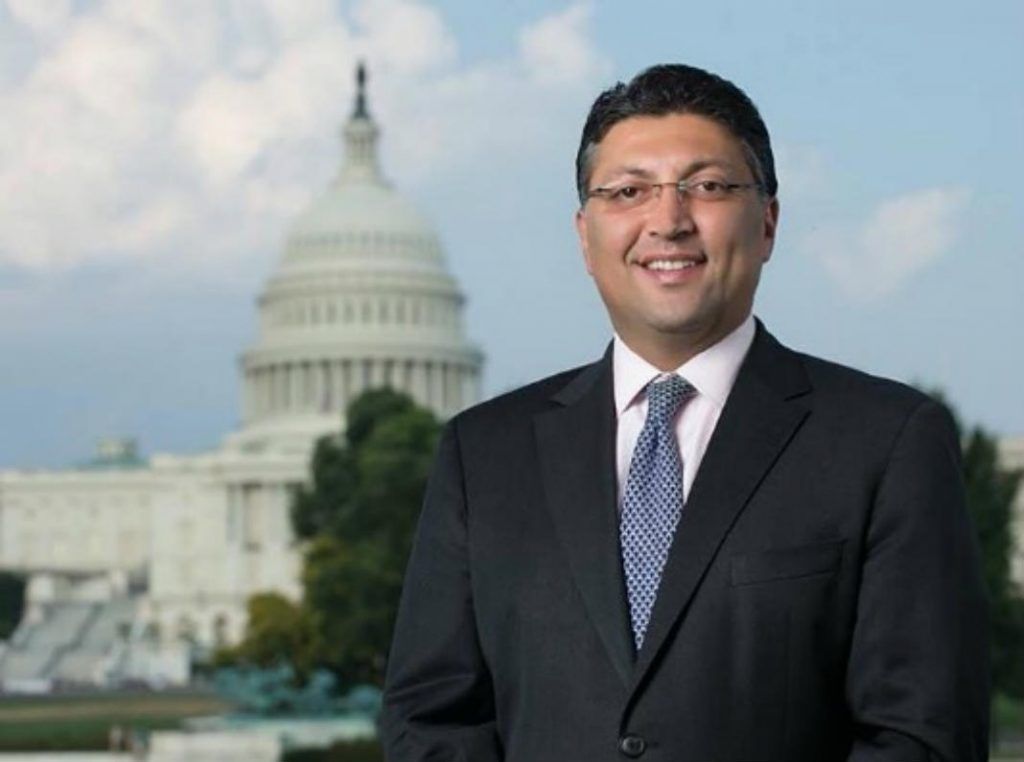February 21, 2017
By Peyman Pejman
President Donald Trump’s statements during the campaign and since he has taken office have sent mixed signals as to how, he personally and his administration as a whole, view minorities. He has readily offended Mexicans, and his administration’s travel ban on citizens from seven majority Muslim countries also created some unwanted enemies. Meanwhile, he has spoken favorably of a Muslim-Arab business partner in the United Arab Emirates, and of Egypt’s President Abdel Fattah al-Sisi.
But in Washington D.C., the power capital of the world, “political placement” speaks louder than words, and it might come as a surprise that one of the chief legal counselors to the President of the United States is an American citizen from one of the seven countries on the travel ban: Iran.

Makan Delrahim, Deputy White House Counsel, is a staunch Republican whose convictions and connections have catapulted him to one of the highest-ranking positions within an earshot of the President.
Born in Tehran to middle class parents, Delrahim moved with his family to Los Angeles shortly after the Shah left Iran. He finished high school and undergraduate studies in California before moving to Washington D.C., where he graduated from George Washington Law School.
While studying for his law degree, Delrahim worked at the National Institute of Health (NIH), a government agency, on technology and licensing issues. That exposure led to a career in government service.
He told Kayhan-London, “As a 23-year-old on loan to the White House Office of the Trade Representative by NIH as an inter-agency transfer, that was my first taste of politics, working on major public policy.” He later got a job at the influential lobbying and legal firm Patton Boggs, LLP. Among many well-connected politicians in Washington, the firm has on its payroll Republican heavyweights such as John Boehner, former Speaker of the House, and former Senate Majority Leader Trent Lott. Saudi Arabia has at times hired the firm to lobby on its behalf.
Three years later, Delrahim found himself working for the Senate Judiciary Committee and its powerful Utah Republican chairman Orin Hatch. He initially undertook technology policy but later became chief of staff to the committee’s chief counsel.

“When I joined the office of Orin Hatch, I didn’t really have a formulated political view. Although the basic philosophies of the Republican party were favoring me, in that I believed in hard work, believed in an accountable government, and personal responsibility, I did not go there out of socio-political positions. I went there as a technology and antitrust expert,” Delrahim insisted.
President George W. Bush appointed him as Deputy Attorney General responsible for policy, appellate, and international issues in the antitrust division.
While his experience in the Senate Judiciary Committee on criminal justice issues, confirmation of judges, and formulation of the Patriot Act were important to him professionally, the defining moments in his becoming a Republican believer was during his time at law school. “That’s probably when I became more aware of my own philosophical tendencies. When you go to law school, you start studying the structure, the constitutionality, and differences in various forms of government.” Delrahim adds, “I do not think there was one particular moment.”
Delrahim emphasised that his deliberate focus and interest in technology and antitrust issues have kept him out of the limelight compared to more extrovert Iranian-Americans. He claimed that his interests do not intersect any policymaking issues dealing with the Islamic republic or with thorny issues such as the travel ban. He stressed that he was not involved in the decision-making process.
“Whenever I have been asked to get together with anybody, I have been delighted to that. Much of my practice and background has been mostly in antitrust, trade, and technology areas. It is where most of my personal interests and focus has been. I have not been at the center of, or an activist on foreign relations or policies or those kinds of things.”
His senior position in the White House, and the perspective he brings as an immigrant, is of consequence. The situation begs for him to weigh in and to pursue the controversy enthusiastically. Observers wonder if he indeed has the proverbial ear of senior advisers in the Trump administration.
Delrahim has commented that the counsel to the president is a long time close friend of his with whom he enjoys a trust-based relationship. He feels comfortable voicing his opinions with policymakers inside the West Wing and believes that people would listen. He says, “But I am not the policy developer.”
“Our office certainly has input on issues such as the travel ban. But the ban was announced three days before the announcement of the new Supreme Court nominee, and I was working 17-18 hours-a-day on that confirmation,” he adds in his own defense.
The broader concern expressed by many in the United States is that the Trump presidency would not hesitate to trample civil liberties in the name of protecting the president’s version of national security. There, Delrahim walks a tight rope.
“I think the president not only has the constitutional prerogative to protect the border but was also given statutory authority by Congress. I think especially since 9/11, with the unfortunate efforts to terrorize the nation, it has resulted in countries all around the world, including the U.S., to tighten security at borders. It creates certain inconveniences,” referring to the September 11, 2001 terrorist attacks against the United States.
He concluded, “I would say to those concerned, that their civil liberties are totally protected. The great thing about this country is that the constitution and the institutions protect the process. I can assure you that not only this president but various advisers around him, including the office of the counsel, are vigilant and concerned that every single policy is totally compliant and protective of those civil liberties. Everybody is trying to do the right thing. These are tough issues. Security and liberty can go hand in hand, and we strive to strike the right balance.”

